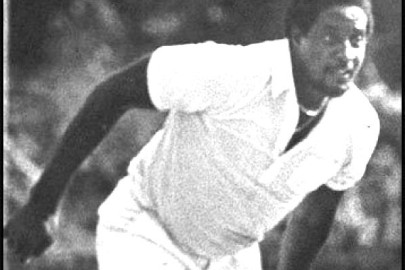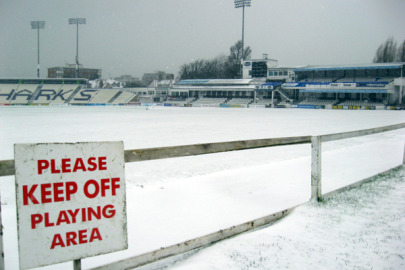Brit considers the epistemological implications of England’s exit from the Rugby World Cup…
On Saturday morning England were knocked out of the 2011 Rugby World Cup, at the quarter-final stage, by France. It was, of course, inevitable.
England lacked skill, organisation, calmness under pressure. They didn’t have enough in them to fight back from a bad start. The England game plan was wrong. The players selected were the wrong ones, playing in the wrong positions. The captain, Lewis Moody, lacked the required tactical nous. The coach, Martin Johnson knows nothing about creating a successful international rugby team and was the wrong man to start with. So were all or most of his assistant coaches. You could see all this because in the previous games England had played in the tournament, all of which they’d won, the signs were there. Those victories – against Scotland, Georgia, Romania and Argentina – weren’t real victories, but misleading anti-victories, pointing to the true underlying malaise. Anyone who understands the game could see this.
In The Sunday Times, rugby writer Stephen Jones, who certainly believes he understands the game, went even further. Decades further. In a four-page spread explaining all the immediate and underlying causes of England’s defeat to France, he opened one section lambasting the way that English schoolboys are taught to play rugby with the line: “England may have lost yesterday’s quarter-final years ago; the roots of their poor World Cup campaign may have been sown when the squad and their peer players were in their early teens.”
And yet… England could have won the game, couldn’t they? Twice in the second half Toby Flood broke several tackles to make surging runs deep into French territory but on both occasions instead of taking the next tackle and going to ground to reset the attack from a promising position – as was the advice coming from my father’s living-room – he made the wrong split-second decision, turning and tossing the ball blind to a non-existent team mate and allowing the French to clear.
Had Flood not done this then on at least one of those breaks England might have scored a try and converted it, taking them seven points closer to France, which was the margin by which they eventually lost. What if that had happened? What if England were now about to face Wales in the semi-final?
For a start we’d have to rewrite the first two paragraphs above. England did have what it takes to fight back from a bad start. It would be the French players, coach and system under the journalistic cosh instead and Stephen Jones’ four-page spread on the roots of English rugby failure would have to wait a week until they lost to the Welsh.
But suppose they then beat the Welsh – they often do, after all – and then went on to defeat either Australia (weaker than usual) or New Zealand (perennial chokers) in the final? All it would take would be grit and luck, Wilkinson to start getting his kicks again, and the odd ten minutes per game of attacking rugby that just clicks. And then suddenly Jones’s piece would have to be junked altogether, and the whole historical picture of causes stretching back from the tactics to the team selection to the group-stage anti-victories (now clearly identifiable as the ‘win when you’re playing badly’ wins that all great teams must manage) to Martin Johnson to the way we train schoolboys would all suddenly flip and transform, like one of those elaborate domino rallies that used to feature regularly on Record Breakers. Stephen Jones would have to fill a special 16-page supplement, ahead of the open-top bus parade through London, on why English rugby rules the world…
Thus the fagpaper-thin gap between triumph and disaster. Which is why nobody can write their explanations of victories or defeats, however insightful and knowledgeable they may be as experts, without the key ingredient of hindsight.
For sports reports substitute economics, politics, military history… It all seems so arbitrary.
And yet… Sport isn’t just arbitrary, is it? Only one thing does happen, so it must have had causes. All the pundits have different views on who will contest the 2011 Rugby World Cup final now, but afterwards they’ll still agree that it was inevitable for clearly identifiable reasons. And they’d probably all be right. All of is true and none of it is true.
Sport gives us a crude simplification of reality but it’s still far too complicated for our puny little minds. We live in ignorance and darkness. Martin Johnson knows nothing about creating a successful international rugby team, but if he retains his post and wins in 2015, he’ll be able to write whole books about how he did it.












insightful and mindbending this early in the morning!
Casting my mind back to the 2007 world cup we played equally dismally, yet somehow managed to get through to the final through the luck of the draw. this time we had an even luckier draw and still managed to get knocked out which shows that team GB is definately on a downward trajectory.
One thing thats interesting is the fine line that sports commentators have to walk when giving a poor home side a drubbing – there’s a certain masochistic pleasure in a bit of self-loathing, but too negative and the fans don’t like it- (many is the time I’ve heard patriotic pub spectators getting angry at Brian Moore’s negative commentary)
RFU in disarray, Manager unable to manage his team on or off the pitch, Manager with same game plan (seemingly) for whatever opposition, skullduggery by managerial staff, new ball doesn’t suit…..something a bit thicker than a fag-paper needed methinks. What about a few P45’s?
Ah, Brit, we live in a world where those with access to the megaphone would order our lives in absolutes. We stand and gaze in wonderment, and not a little puzzlement. So be it, we who are cynics say screw the lot of them and get on with the gardening.
They were shite though, weren’t they, sack the manager why don’t they.
Luck is always underemphasised in explaining a close run thing – it flatters the winners, who, as we know, write the history.
I’m not really getting the whole thing about people feeling ‘let down’ by players behaviour off the pitch…on the pitch fine, they’ve been totally useless, and deserve everything they get…but I hardly think their other ‘antics’ have been anywhere near as bad as the press is trying to whip us up into feeling
1) It’s been talked up to totally ridiculous levels by prurient/hypocritical press – but why should Zara Philips be called to show public ‘annoyance’ at a photo which doesn’t actually show anything? Tindall had his photo taken being jumped on by a girl. Does this point to some great overarching malaise? I don’t see how.
2) Blokey man has fun by jumping off boat – after all sport playing has ended, again, stupid, but does it really mean anything apart from an emblem to pin some indefinable rage on?
Sports players have always behaved (usually worse) than this
The incident with the hotel maid wasn’t cool though. Not cool at all.
I concur
I have read SJ’s match reports over the years and I would say he has a soft spot for England so his reaction when they play badly and lose can be OTT. At other times he will eulogise their “magnificent forward power” after grinding out an uninspiring result. As you say the gap between defeat & victory can be wafer thin. Games often turn on moments where one side gains the psychological upper hand (not necessarily a score) and the other side stops believing they can win. I sometimes think “great” leaders are just very convincing and then lucky. Getting a group of people to work together in harmony is tricky. A dictator is often the answer (e.g. Steve Jobs). As they say, nobody knows anything. Or for every person who does know something, there are 100 fools they have to work around.
I’ve witnessed so many English failures, often with a sense of resignation, but in the knowledge that there will be another day, when hope will rise yet again, and on that glorious day victory will be ours. But how much longer can I afford to wait? Can I hang on until cryonics provides a safe and foolproof answer and then simply let go knowing I will return to see ‘World Champions’ banners fluttering above Wembley and Twickenham? Probably not.
I agree, it is often a fagpaper of difference that separates triumph and disaster. But, strangely for me, on this occasion I didn’t want Flood to re-run those gallops and, instead of throwing the ball aimlessly to a lurking Frenchman, find a rampaging bull alongside to smash his way over the line. How large would have been the papered-over cracks? How weakening would victory have been to RFU resolve to attack the post 2003 malaise, root and branch, with a chopper wielded by a Woodward? What damage would have been done to a four-year commitment to youth? And ten other such questions. You rightly pose the what if questions in a fine, beautifully balanced, and thought-provoking post. But as Wittgenstein postulated in a fiery altercation with Russell: “If my Auntie had balls, she’d be my Uncle!”
Why quote Stephen Jones. The man’s an imbecile. He perpetually rants and raves about how great England are and how poor the All Blacks are. He fails to ever mention the overwhelming truth of the matter, namely that the stats show that NZ has beaten England in 80% of their matches.
See this site:
http://www.rugbydata.com/england/newzealand/gamesplayed
You can yabber all you like about NZ choking at the world cup, but really? NZ has and always will have the wood on England because as with most of your sports, you live in the dark ages, professing a “purist” attitude. Purists don’t win games, those who embrace change do.
The greatest threat to NZ’s quest to finally reclaim the cup are probably actually the Welsh vs. Australia. The Welsh seem to adopted the modern game i.e. speed and agility vs. dogged boring trench warfare. I’d comment to Stephen Jones if I could but…
“Get with the program Stephen, England are washed out fuddy duddies, just like you”.